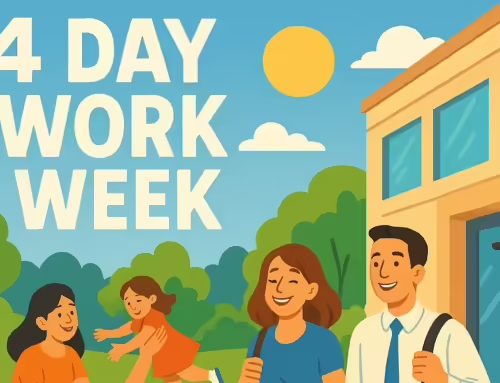Being a boss isn’t always that easy as any successful leader will tell you. From working with many of our customers over the past 10 years we have noticed that one of the biggest challenges leaders face is making the distinction between being liked and being respected as the boss.
We’ve created some suggestions for you below, to help you develop and support a respectful working relationship with your team
One – Do the right thing for the team and the business
Being respected can often mean that you are put in positions where you need to make tough decisions, that will unfortunately have a negative impact on your team. Often this occurs when an employee needs to leave the business, either through restructure or dismissal.
In the case of redundancy, often its no one persons fault that the business needs to restructure and can lead to feelings of loss, insecurity or frustration that the team dynamics are going to change due to these other influences.
A leader too focussed on keeping people happy may well simply try to avoid dealing with the issue or delay the decision-making process to postpone the confrontation and later hurt feelings. The impact of this is that the cost savings may not be achieved and so jeopardise the employment of themselves and others if it goes on too long.
A leader focussed on respect acknowledges that what is happening is not good, but tries to keep up a transparent approach to solving the issue by being honest when asked questions (inc. admitting that they don’t know things), takes the time to talk to all staff involved so that they know what’s going on and works to set deadlines so the team can see when it is likely to end, and they can then start to move on.
Two – Be fair not kind
Sounds a little odd drawing a distinction between the two but it serves to make a point about respect. Being kind can often mean that you give in order for someone else to gain, in the world of business this could be a manager taking on a task for an employee because they need to go home early.
To be honest there are often times when this needs to happen, but if it goes on too long it can lead to a lop-sided relationship with one party feeling that they have the right to ask, and the other feels obliged to help out.
Whilst a nice thing to do, it can actually diminish respect over time or if your good nature gets abused.
Being fair is about acknowledging the situation and making sure that when you make a decision it is done so for reasons that a fair to all parties. In the example above, the employee needs some help, and as the leader you take on the extra work to help them out. If this is repeated, in effect you are being too generous to the employee and not fair on yourself as you have your own job to do.
I often describe this as a question of maths.
The employee comes to work and for every hour they work they receive 100% of their pay. But this does not always give us 100% of their effort. Some put in more, and those that dodge tasks or responsibility put in less.
For those putting in less this leads to a performance/pay gap – i.e they get 100% but only give 75%……..so who picks up the slack?
The leader does. So, for 100% of your pay you are now putting in 125% effort. That is not fair if the situation persists
So the rule is don’t be afraid of holding people to account for their job, you have to do yours and they need to do theirs.
Three – Honesty is always the best policy
In the words of Master Shifu (yes I have children) – there is no such things as good news or bad news, there is just news. A respected leader never shies away from tough messages. We all find it easy to say nice things, but we often feel tempted to hide the negatives for fear of upsetting others. Being respected is that you are willing to do both.
The trick for delivering tough messages is to be honest and clear in what you are saying, only speak about the facts you know and be honest when answering questions from the team. The biggest mistake you can make when discussing bad news is to start blaming others for what has happened, this damages your own credibility and can make hurt feelings worse.
If you build a culture of honesty, you’ll find the team spend less time gossiping, become more receptive to negative messages and will often approach you more to admit their mistakes as they understand issues will be handled in a factual and not a personal way.
Behaviours that drive respect
If you want to build greater respect with colleagues try and concentrate on demonstrating the following behaviours with your team:
- Don’t be afraid of saying what you think to others
- Demonstrate empathy when discussing problems with colleagues
- Take the time to listen to colleagues when they speak
- Avoid spreading gossip among colleagues
- Avoid blaming others for problems
- Be assertive when needed and stick to your guns
- Hold others accountable for their own performance
Author
Rob Coates is the owner of Willerby Hill and is a Chartered Fellow of the CIPD




